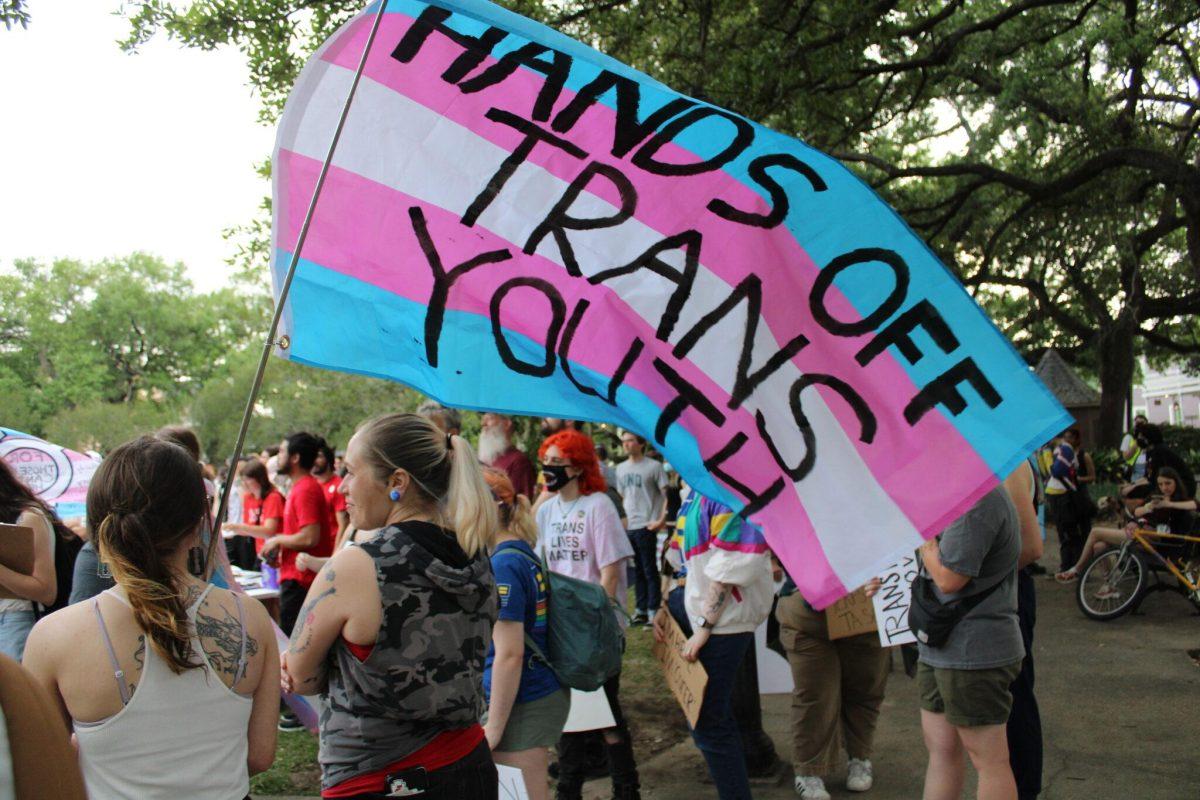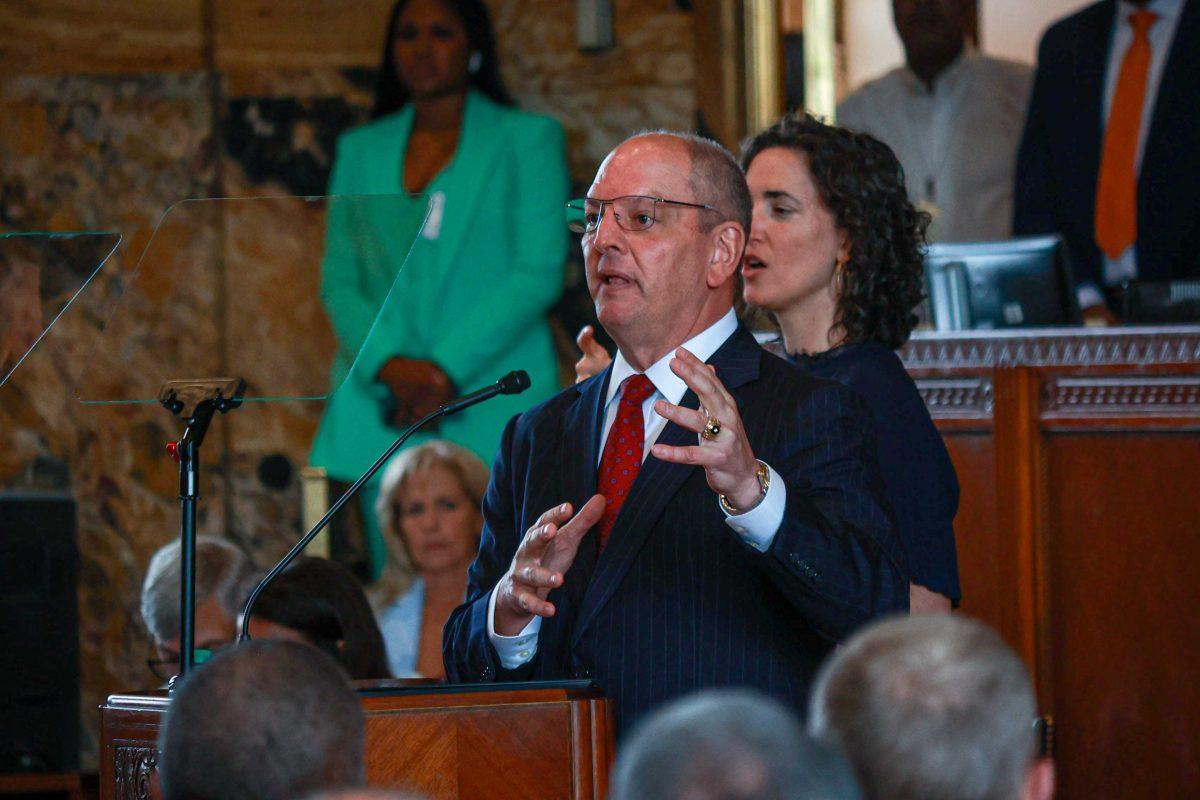During the 2023 regular congressional session, the Louisiana legislature sent three bills targeting LGBTQ+ rights to the governor’s office.
Gov. John Bel Edwards vetoed the anti-LGBTQ+ legislation on June 30, but the fact that the bills were mostly tied to classrooms and education has raised many concerns about the future of trans youth in Louisiana.
House Bill 466
Drafted by Rep. Dodie Horton, R-Haughton, this bill aims to prevent teachers from both discussing matters of sexual orientation or gender identity with students and referring to students by any name or pronouns deviating from the ones on their birth certificate.
The ban on discussing sexuality and gender would apply to teachers of grades kindergarten through 12. The limitation extends outside the classroom and into any school-sponsored extracurricular activities.
The bill also says that students may use alternative names or pronouns with written permission from a parent, but teachers and other students are only under loose obligation to respect those wishes. According to the bill, if a teacher or student “sincerely held religious beliefs” that would be upset by using a child’s preferred pronouns, they don’t have to.
House Bill 81
Also known as the “Given Name Act,” House Bill 81 doubles down on extinguishing the use of any name or pronouns not listed on a student’s birth certificate. In line with House Bill 466, students would have to receive parental permission to use their preferred name or pronouns, and teachers would be allowed to object on religious grounds.
The bill was written by Rep. Raymond Crews, R-Bossier.
House Bill 648
Rather than the classroom, this bill’s range of control would extend to the doctor’s office. Authored by Rep. Gabe Firment, R-Pollock, it would prevent doctors from providing transgender minors with age-appropriate healthcare.
The bill also goes by the name “Stop Harming Our Kids Act,” and it would ban all forms of gender-affirming care, from hormone treatments to full surgical operations.
The bill would also have doctors already providing care to transgender youths immediately cease treatment, even if it has been documented as beneficial for the child. Doctors would potentially face losing their license for failing to adhere to these premises.
Senator Fred Mills, R-Parks, helped kill the bill during its first time on the floor. Mills said he had an open mind going into the hearing and wanted to hear the full arguments of the bill’s proponents and opponents. He said the science and data on the issue as well as the testimony of medical professionals were the biggest influences on his decision.
“When I cast my vote I said that I prioritized the value of the physician–patient relationship,” Mills said. “I put my trust that the physicians in Louisiana know better than I do regarding how to treat these children based on medical standards of care, and I decided that this is such a small unique subset of the medical needs of the entire population that I should not take away approved and appropriate medicinal options.”
As a Republican, Mills’ vote may have been shocking to many members of the party. He said the reactions to his decision showed him how polarizing the bill was.
“I have received so many kind messages from families thanking me for recognizing the medical importance of access to puberty blockers or hormone therapy and how that saved their child’s life,” he said. “I’ve also been on the receiving end of very hateful comments.”
With so many attacks being leveled at Louisiana’s LGBTQ+ youth, organizations like the Louisiana Trans Oral History Project are working harder than ever to raise awareness of the issue.
Sophie Ziegler, a member of the project, believes the bills are merely a way for conservative lawmakers to weaponize people’s bigotry while ignoring the worthwhile problems in the state. Lawmakers know people fear things they don’t understand, and because trans youth are a defenseless group, they can capitalize on that, they said.
“Louisiana has no shortage of actual problems that our lawmakers could be focusing on – we remain at the bottom of the list of states for education and health, and at the top for incarceration and HIV cases,” Ziegler said. “I don’t think this fascination with the genitals of children reflects the needs or wants of the population of the state.”
Ziegler also believes the bills seek to erase LGBTQ+ identities by banning discussions about them.
“Supporters of these bills think that if they can keep people from knowing about queer and trans identities then these identities will disappear,” they said. “Unfortunately, what will happen is that queer and trans youth will feel disconnected and unwanted.”
Some people also believe the recent wave of legislation is only the beginning. LSU student Tiya said erasing queer and trans kids’ identities will only lead to further restrictions and further oppression. Tiya requested to only use her first name to protect her identity from being outed.
“This is just a stepping stone to even stricter and more broad regulation to everyone in all ages, they just have greater control over kids. They have already started to restrict access to trans care for adults as well in states like Florida and Missouri,” she said.
As a trans woman, Tiya has a personal connection to these issues. She said watching these changes unfold in the state is “absolutely gutting.”
In an end-of-session press conference, Edwards confirmed his intent to veto the bills, saying proposed bills would only make issues like the high suicide rates among trans youths even worse. He vetoed all three House bills.
Gov. John Bel Edwards vetos three anti-LGBTQ+ bills, trans community reacts to legislative session
July 7, 2023
Louisiana LGBTQ Legislature Graphic Fitzmorris
More to Discover














